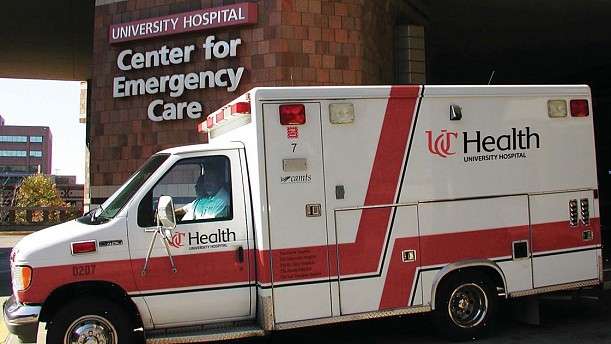University of Cincinnati (UC) and Cincinnati Children's Hospital Medical Center researchers are conducting a study on seizures to find out which of three commonly used medicines administered in the emergency department are safer and more effective at quickly stopping a seizure for Established Status Epilepticus (ESE).
ESE occurs when a person has a seizure lasting longer than five minutes without stopping or waking up, even after they receive a full dose of medicine.
"Someone having a seizure must be treated quickly," said Brandon Foreman, MD, assistant professor of neurology at the University of Cincinnati College of Medicine. "Under normal circumstances, we would get permission from a person or his legal representative before having him participate in a research study. In these cases, consent may not be possible, so the patient may be enrolled into this study without consent."
This practice is called an Exception from Informed Consent (EFIC). It involves a special set of rules created by the U.S. Food & Drug Administration (FDA) in certain emergency situations. The goal of the study is to learn which medication is most effective at stopping a seizure. Once the patient wakes up and his legal representative is located, they will be told about the patient's participation in the study and asked to have the patient continue in the research.
"Before researchers may do any study using EFIC, we must provide information about the study to the community and get feedback," Foreman said. "This study would potentially involve a very tiny number of people. But, we are obliged to make this information known in advance of implementing the study to give the public an opportunity to comment and give potential participants an opportunity to decline participation.
Enrollment is expected to begin near the end of summer or early fall 2015.
UC and Cincinnati Children's are among 25 academic medical centers across the country involved in the trial, which is known as the Established Status Epilepticus Treatment Trial, or ESETT. There are between 120,000 and 180,000 cases of ESE in the U.S. each year. About a third of these patients continue having seizures after being treated with benzodiazepines, the standard first-line treatment for ESE. It is anticipated that about a half dozen patients at each emergency room in Cincinnati will be enrolled annually.
Qualifying patients will be randomly selected to receive one of three different drugs: fosphenytoin, levetiracetam and valproic acid. All are FDA-approved anti-convulsants, but they work in different ways and have different risks. The risks of the study medicines are the same whether they are given in the study or for treatment of seizures outside of this study.
Anyone taken to the emergency department at UC Health's University of Cincinnati Medical Center or Cincinnati Children's with ESE may be eligible for participation and automatically enrolled in the study if they:
- Are 2 years of age or older
- Experience seizure(s) lasting longer than five minutes
- Received medicine (benzodiazepines) to make the seizure stop 5 to 30 minutes before possible enrollment
More information: For more information, or to decline participation in this study, contact UC Health at 513-558-8499 or esett@uc.edu or Cincinnati Children's at 513-803-3738 or esett@cchmc.org.
Provided by University of Cincinnati


















